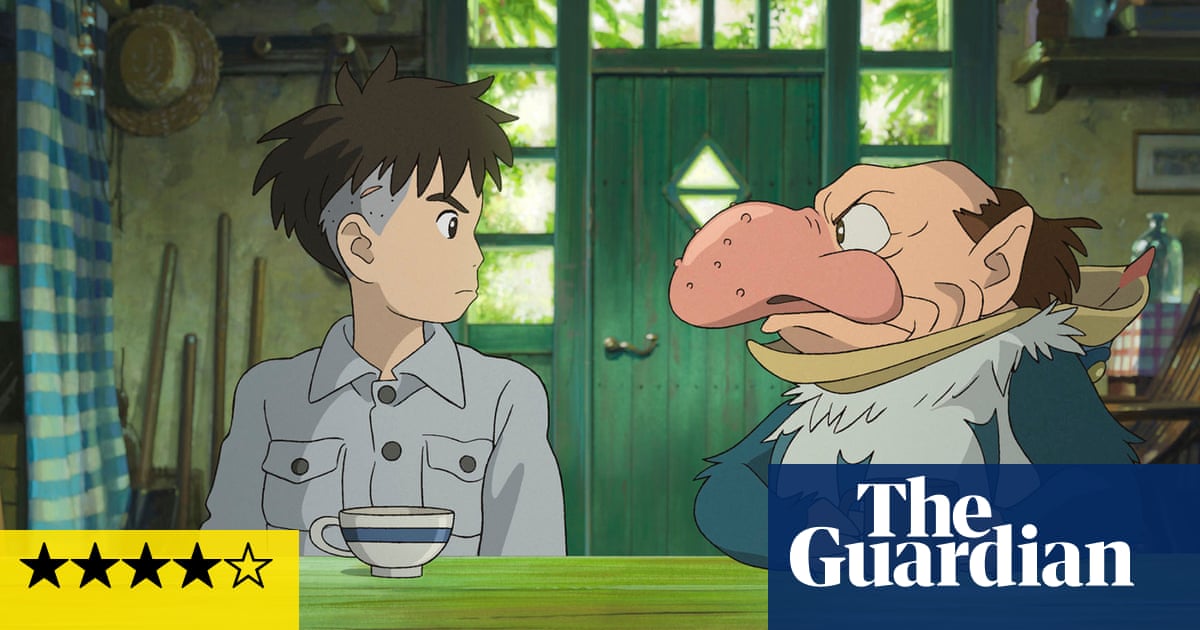
Nearly 40 years after their break-up, Abba’s reunion album upholds the contradictory legacy of the very first Swedish pop powerhouse. Half of this record finds hatchet-burying divorcés Benny Andersson and Anni-Frid Lyngstad, Agnetha Fältskog and Björn Ulvaeus returning as titans of emotionally literate pop. There are songs here with a cinematographic grasp of gesture allied to countermelodies of aching prettiness, almost casually thrown away. In the very same breath, though, Voyage packs in a surfeit of hokey oompah and two Christmas tunes too many. The saccharine children’s choir on Little Things is an inevitability; cynically, Andersson and Ulvaeus probably wanted a slice of the never-ending fruited royalty pudding that comes with Christmas-themed songs.
In short, Voyage is an album that asks: “Which Abba are you – frothy or full-on?” as you hit the skip button. But you’ll be glad Abba made it. Both a monument to bittersweet pop erudition and a mass-market sop, it finds all four singers in strong voice, their effortless harmonies evidence of much water having flowed under Stockholm’s bridges, interpersonally speaking.
Crucially, given even Paul McCartney’s urges to get with the times on his Greg Kurstin and Ryan Tedder-produced Egypt Station album of 2018, Abba aren’t trying to be contemporary. Andersson and Ulvaeus tune out all the chart noise of the past decades; neither Fältskog nor Lyngstad has taken to melisma or mumble rap. One track, Just a Notion, actually dates from the sessions for 1979’s Voulez-Vous album. The perky penultimate track, No Doubt About It, merely sounds like it does.
You can hear the odd update. Andersson and Ulvaeus have levelled up the technical specs that were available to them 40 years ago while still cleaving close to the blithe, minor-to-major-to-minor-key Abba template. Their classical tendencies, previously more leashed, are given fuller rein in some lavish string arrangements. Ode to Freedom, the somewhat cryptic closing track, has an unabashedly orchestral bent.
Untouched by the years, Fältskog’s and Lyngstad’s voices actually sound more similar than they used to, making it hard to work out who is taking the lead vocal. In an interview with Swedish radio, Fältskog alludes to this “marriage” of their voices – and her intention to keep rekindled Abbamania at arm’s length.
This Voyage was by no means certain. After decades of reunion naysaying, by 2018 it was clear that Abba, buoyed up by theatrical and film successes, were cooking up a hi-tech live experience. That curtain rises in early 2022, when four imperial period “Abbatars” created with motion capture technology will deliver the music of peak-period Abba in a specially built arena in east London.
As Andersson and Ulvaeus tell it, new tunes snowballed from the idea that any set list their virtual avatars might “play” should include a couple of fresh tracks. When footage emerged of the four seventysomethings gathered around a piano, lyrics in hand, it felt like a triumph of Nordic steadfastness in a super-heated world full of suboptimal outcomes.
So let’s take Voyage as unexpected evidence that hope is not a fool’s game. It helps to ignore the album’s cheesier shortcomings – the John Lewis ad-gone-supernova that is Little Things, with its simpering talk of stocking fillers, or the Celtic pop of When You Danced With Me, or the well-intentioned, but misfiring environmental ballad, Bumble Bee – and cut straight to the bleeding heart of Abba’s best craft.
On break-up songs such as The Winner Takes it All or Knowing Me, Knowing You (at least before Alan Partridge hijacked it), the “boys” – Andersson and Ulvaeus – had always put words in the mouths of the “girls” – Fältskog and Lyngstad – to sing. By and large, despite this imbalance of power, the feelings conveyed in Abba songs have been believable, sensitive, even.
Here, Don’t Shut Me Down, the better song of the pair of singles released in September, finds Abba telling the story of their return (“I’ve been reloaded!”) while the song’s flawed central character begs eloquently for a second chance at love. Another fully realised vignette, I Can Be That Woman, comes from a similar place.
A couple argue in front of a dog, with Fältskog’s protagonist alluding to an alcoholic past that she has overcome in her hopes to be a better partner. “The dog, bless her heart, licks my fingers, but she jerks every time you swear” is a lyric that perhaps doesn’t sing when isolated on the page, but it renders the homely, fraught scenario in high definition.
Keep an Eye on Dan, meanwhile, finds a parent anxiously dropping a child with his dad for his tenure of the custody agreement, then driving around the corner and punching the car steering wheel in abject misery. This is what we pay Abba for – mature storytelling awash in melody.












